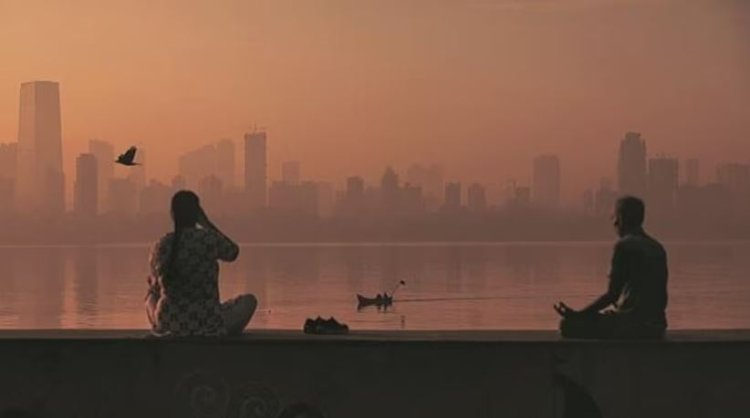A layer of haze enveloped Mumbai as the Air Quality Index (AQI) fell into the 'poor' category post-Diwali celebrations.
According to the System of Air Quality and Weather Forecasting And Research (SAFAR-India), the overall AQI of the city was recorded at 234 which falls under the 'poor' category.
The air quality of the Borivali area stood at 307 while that of Kalanagar was recorded at 312. The AQI in Chembur was recorded at 334 and that of the Worli area was recorded at 134, as per SAFAR-India.
This comes after people engaged in heavy fireworks on Diwali nighokt. Visuals from Shivaji Park showed revellers in large numbers lighting up crackers.
Earlier this week, the overall AQI of the city stood at 149, under the 'moderate' category.
Air Quality Index (AQI) is a tool for effective communication of air quality status to people in terms, which are easy to understand. It transforms complex air quality data of various pollutants into a single number (index value), nomenclature, and colour. The AQI from 0 to 100 is considered good, while from 100 to 200 it is moderate, from 200 to 300 it is poor, and from 300 to 400 it is said to be very poor and from 400 to 500 or above it is considered as severe.
In the wake of the worsening air quality in the city, the Mumbai High Court permitted the busting of firecrackers only for 3 hours in the country's commercial capital -- between 7 p.m. and 10 p.m.
However, the Supreme Court, in its November 7 order, emphasized a blanket ban on fireworks across all the states.
The Bombay HC earlier passed interim directions to the Maharashtra government and municipal authorities in Mumbai and surrounding areas to mobilise urgent steps to mitigate worsening air pollution.
Meanwhile, the national capital is also grappling with higher pollution levels post-Diwali celebrations.
Visuals from various parts of Delhi showed thick haze covering the roads, significantly reducing visibility and making it difficult to see beyond a few hundred metres.
What is important to note is that the national capital has already been struggling with pollution for the last few weeks. The AQI at many places peaked in the 'severe' category and continued to remain toxic for several days, but after Diwali, it is now very likely that the national capital will once again witness a rise in pollution levels, making it difficult for the people inside the city to breathe.



